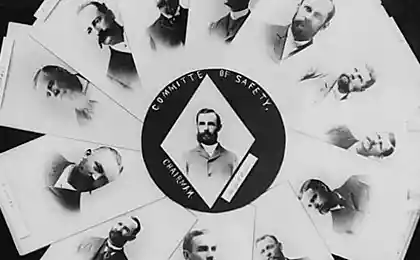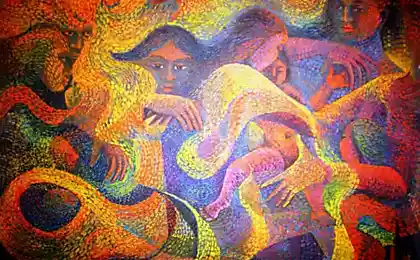472
People can have a collective consciousness
This proves a number eksperimentov
Some may call it coincidence, others - a sixth sense, but almost everyone in my life had a few moments when he thought about someone something, and a moment later the man called him, or is the feeling that something is about to happen, and immediately after this event took place.
This may be due to the so-called collective consciousness - a term used by scientists to describe the situation when the behavior of people or animals, or the exchange of ideas take place on a subconscious level.

The idea of collective consciousness was first proposed by French sociologist Emile Durkheim in 1893. Basically Durkheim tied it with a certain understanding of morality and social norms based on the imitation of people to each other, according to this behavior, or consent to the adoption of certain ideals, to become a full member of society. However, in the 1970s, scientists began to talk about the collective consciousness as something does not extend so obviously - telepathically, or "supernatural" way.
The proof of this theory is the "phenomenon of hundreds of monkeys": a flock of macaques on an island Hoshimov learned to wash fruit before eating, and soon after the monkeys from other schools began to do the same. It is important to note that these monkeys have never been in contact with their relatives from the first pack. Similarly, in Europe the birds learned to drink milk out of the narrow bottle, after which similar behavior has been observed in almost all birds, but contact with each other, they could not.

Professor Daryl Bem, a physicist at Cornell University, conducted a series of experiments with the participation of thousands of people, all of them, except one, have shown the presence of such "telepathic" abilities. However, other scientists are skeptical about the results of Professor Stuart Ritchie of the University of Edinburgh conducted the same study, and the results have not been confirmed. However, he was unable to explain why the results are so different from the results Bema - he Boehm believes that the reason skepticism colleagues.
via factroom.ru

Some may call it coincidence, others - a sixth sense, but almost everyone in my life had a few moments when he thought about someone something, and a moment later the man called him, or is the feeling that something is about to happen, and immediately after this event took place.
This may be due to the so-called collective consciousness - a term used by scientists to describe the situation when the behavior of people or animals, or the exchange of ideas take place on a subconscious level.

The idea of collective consciousness was first proposed by French sociologist Emile Durkheim in 1893. Basically Durkheim tied it with a certain understanding of morality and social norms based on the imitation of people to each other, according to this behavior, or consent to the adoption of certain ideals, to become a full member of society. However, in the 1970s, scientists began to talk about the collective consciousness as something does not extend so obviously - telepathically, or "supernatural" way.
The proof of this theory is the "phenomenon of hundreds of monkeys": a flock of macaques on an island Hoshimov learned to wash fruit before eating, and soon after the monkeys from other schools began to do the same. It is important to note that these monkeys have never been in contact with their relatives from the first pack. Similarly, in Europe the birds learned to drink milk out of the narrow bottle, after which similar behavior has been observed in almost all birds, but contact with each other, they could not.

Professor Daryl Bem, a physicist at Cornell University, conducted a series of experiments with the participation of thousands of people, all of them, except one, have shown the presence of such "telepathic" abilities. However, other scientists are skeptical about the results of Professor Stuart Ritchie of the University of Edinburgh conducted the same study, and the results have not been confirmed. However, he was unable to explain why the results are so different from the results Bema - he Boehm believes that the reason skepticism colleagues.
via factroom.ru
The man who only recently became the first boss, especially vindictive
There are as many as five types of boredom























